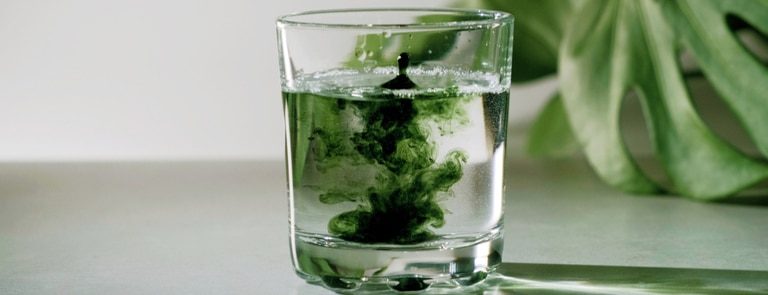10% off £35
Code:SAVE
Vitamin B2: your body's energy essential

The body needs to convert food to energy to work efficiently. Here's how Vitamin B, essential for food-to-energy conversion, helps the body do just that.
Tired of feeling tired? Discover the health benefits of vitamin B2, one of the essential B vitamins we need in our daily diet.
Like all eight B vitamins, B2 is essential for helping you convert food into energy so your body works efficiently.
And vitamin B2 – also known as riboflavin – is a must for keeping your skin, eyes and nervous system healthy.1 Plus, it helps turn fellow B vitamins, folate and B6, into forms your body can use.
Handpicked content: 10 amazing facts about your skin
B2: the energy vitamin
Running on empty? Vitamin B2 helps to break down fats, proteins and carbohydrates, and keeps a steady supply of energy flowing through your body. It can also convert carbohydrates into a substance called adenosine triphosphate (ATP), which helps store energy in our muscle cells until we need it.2B2 may help you feel less tired
Not getting enough vitamin B2 also reduces how much iron your body absorbs. We need iron to produce the red blood cells that carry oxygen to our organs and tissues. Low iron levels impact on our energy levels by triggering symptoms like fatigue, and can even lead to anaemia.3It’s a secret antioxidant
It’s a little-known fact that B2 is an antioxidant, like vitamins A, C and E. This means it helps your body deal with oxidative stress – the damage from free radicals that has been linked to conditions such as heart disease.4 Handpicked content: What causes heart disease and am I at risk?Essential for good eyesight
Vitamin B2 helps prevent our eyes sensitivity to light, while some studies suggest the nutrient could also help you see in the dark.5 A 2003 report, published in the American Journal of Clinical Nutrition, found that a lack of riboflavin may lead to night blindness. Scientists think there are photoreceptors in the eyes that need riboflavin to help adapt to darkness, and that it may work with vitamin A to improve our night vision.6 Handpicked content: What causes migraine and how to treat itAre you getting enough vitamin B2?
Like all B vitamins, B2 is water-soluble so it’s not stored in your body. If you have a vitamin B2 deficiency because you’re not getting enough from your diet, you might notice some of these symptoms: • fatigue • sensitivity to light • tired eyes • digestive problems • cracks at the side of your mouth • a swollen tongue Handpicked content: How to fight fatigueVitamin B2 foods
You can find vitamin B2 in a wide variety of foods including milk, eggs, fortified cereals, rice, spinach, wholegrains and almonds.7 UV light can destroy B2, so store foods out of the sun.8Advice is for information only and should not replace medical care. Please consult a doctor or healthcare professional before trying any remedies.
Shop our Vitamins & Supplements range.Sources
1. NHS Choices. Riboflavin (vitamin B2). Available from: https://www.nhs.uk/conditions/vitamins-and-minerals/vitamin-b/#riboflavin-vitamin-b2 2. Medical News Today. Vitamin B2: why do we need it and where can we get it? Available from: https://www.medicalnewstoday.com/articles/219561.php 3. Powers, H. Riboflavin (vitamin B-2) and health. Available from: https://academic.oup.com/ajcn/article/77/6/1352/4689829 4. Ashoori M, Saedisomeolia A. Riboflavin (vitamin B2) and oxidative stress: a review. Available from: https://www.ncbi.nlm.nih.gov/pubmed/24650639 5. As Source 3 6. As Source 3 7. University of Maryland Medical Centre. Vitamin B2 (Riboflavin). Available from: https://www.umm.edu/health/medical/altmed/supplement/vitamin-b2-riboflavin 8. Sheraz M, et al. Photo, thermal and chemical degradation of riboflavin. Available from: https://www.ncbi.nlm.nih.gov/pmc/articles/PMC4168737/Related Articles
Shop by wellness goal
Sign up for exclusive offers
Plus, get expert advice to support your health & wellness straight to your inbox when you sign up to Holland & Barrett emails.
Read our
privacy policy














